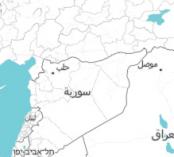
The health and humanitarian response to the crisis in Syria is being severely hampered by a lack of coordination and insufficient funding, say public health doctors Adam Coutts and Fouad M Fouad.
The Syrian conflict is now a humanitarian and public health catastrophe for the country and the region. UN High Commissioner for Refugees (UNHCR) António Guterres described the current situation as the greatest humanitarian disaster of the past two decades, requiring the largest-ever humanitarian appeal. The UN has called for US$5.2 billion for a regional response plan that includes support to neighbouring Lebanon and Jordan. The G8’s Lough Erne Declaration pledge of $1.5 billion goes someway to securing these funds. However, pledges are still outstanding from the $1.5 billion requested in January, 2013, and the wider international community and their populations are displaying signs of compassion fatigue despite rising needs. The inability to mobilise the substantial funds to fulfil the new appeal threatens the effectiveness of the humanitarian response.
Across Syria, 7 million people are in urgent need of humanitarian assistance and more than 5.1 million are internally displaced. Civilian casualties are estimated by the UN to be more than 90 000 with more than 500 000 injured and reports by non-governmental organisations (NGOs) working within Syria say the mortality figure may actually be around 130 000.
The full article continues at http://www.thelancet.com/journals/lancet/article/PIIS0140-6736%2813%2961421-X/fulltext on The Lancet’s website.

